Top 10 Best Digital Camera Brands
The rise of smartphones has made digital cameras seem like a thing of the past, but for photography enthusiasts, nothing beats a dedicated camera with high-quality lenses and advanced features. With so many options available, it can be difficult to choose the right digital camera that suits your needs. That's why we asked you to share your favorite digital cameras. After tallying up the votes, we present to you the top ten digital cameras as selected by you.From compact point-and-shoot cameras to professional-grade DSLRs, the list includes a wide range of options for different budgets and preferences. Whether you're looking for a camera for travel, landscape photography, or portraits, there's something on this list for everyone.
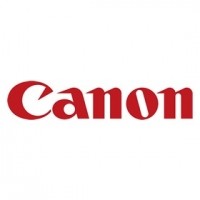 Canon is a Japanese multinational corporation known for its range of cameras, camcorders, and printers. The brand has a long history of innovation in the realm of photography and is renowned for its DSLR and mirrorless camera systems. Canon cameras often come equipped with advanced image processors and high-quality lenses, making them a popular choice among both amateur and professional photographers.
Canon is a Japanese multinational corporation known for its range of cameras, camcorders, and printers. The brand has a long history of innovation in the realm of photography and is renowned for its DSLR and mirrorless camera systems. Canon cameras often come equipped with advanced image processors and high-quality lenses, making them a popular choice among both amateur and professional photographers. I've used them professionally since the beginning of DSLRs with utmost reliability and quality. I'm a huge fan of the 5D series and have relied on it for most of my work since day one. The lens lineup is also second to none. My favorite, the EF 70-200mm f/2.8L IS II, accounts for about 70% of my shots. It has taken thousands upon thousands of pictures since its 2010 debut, without fail. Reliability is crucial for professional use.
Also, the service department, primarily using CPS, is the best there is. I'm always looking forward to Canon's next product announcements!
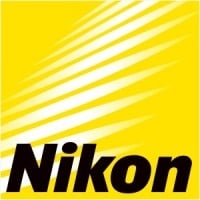 Established in Japan, Nikon is a leading name in the imaging and optics industry. The company specializes in cameras, binoculars, and other optical instruments. Nikon DSLRs and mirrorless models are lauded for their robust build, optical quality, and reliable performance, catering to photographers of all levels.
Established in Japan, Nikon is a leading name in the imaging and optics industry. The company specializes in cameras, binoculars, and other optical instruments. Nikon DSLRs and mirrorless models are lauded for their robust build, optical quality, and reliable performance, catering to photographers of all levels. As a professional photographer, I have used all sorts of cameras from many brands. But if I had to choose just one brand, it would be Nikon for their ease of use, great quality, durability, and the number of features you get for the value. They almost always lead the way in terms of optical zoom and megapixels and cost a fraction of the price of competitors.
For a personal camera, I also use Nikon and have done so for over twenty years. They are a fantastic brand with options at all price ranges. From great point-and-shoots to fantastic super-zoom compacts like the A900, to magnificent DSLRs, Nikon offers a camera for everyone at an amazing price, with class-leading features.
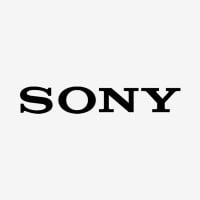 Sony is a Japanese electronics conglomerate with a diverse product portfolio, including digital cameras. The brand has been a pioneer in mirrorless technology, offering cameras with high-speed autofocus and excellent low-light capabilities. Sony's Alpha series has gained significant traction for its compact design and state-of-the-art features.
Sony is a Japanese electronics conglomerate with a diverse product portfolio, including digital cameras. The brand has been a pioneer in mirrorless technology, offering cameras with high-speed autofocus and excellent low-light capabilities. Sony's Alpha series has gained significant traction for its compact design and state-of-the-art features. Sony has transformed the face of photography by bringing full-frame mirrorless cameras to the forefront. They have taken up the mantle from Contax as the only cameras to feature autofocus Zeiss lenses. Sony pairs the best lenses with the best sensors, period. They are instruments for professionals. Like Leica's M series or Nikon's F series, Sony's A7 series is the new icon of photography.
Compact size and excellent quality. Although Canon is currently leading the market, Nikon has already started losing the game. Just wait and watch. Sony will be on top. The journey has begun with the launch of the ILCE-9, the father of all cameras.
 Originating in Japan, Olympus has been a player in the imaging sector for decades. They are particularly known for their micro four-thirds mirrorless camera systems, like the Olympus OM-D series. These cameras offer compact sizes without sacrificing professional-level features or image quality.
Originating in Japan, Olympus has been a player in the imaging sector for decades. They are particularly known for their micro four-thirds mirrorless camera systems, like the Olympus OM-D series. These cameras offer compact sizes without sacrificing professional-level features or image quality. I have owned a number of camera brands, and the one I have used quite a lot is Samsung. I recently bought an Olympus SP-720UZ, which was not expensive for a student. It is a lovely piece and takes good-quality pictures in the dark with flash.
I'm looking forward to getting a more advanced version of this model.
Olympus has some amazing technology. In the coming years, we can expect to see Olympus offering best-in-class digital cameras, particularly in the evolving mirrorless systems.
I'm a proud owner of the OM-D E-M5 and absolutely love it! It's the best camera I've owned among my entire DSLR collection.
 Hailing from Japan, Pentax has been in the imaging industry since the early 20th century. Known for their DSLRs and rugged outdoor cameras, Pentax offers a wide variety of options for different skill levels. Their K-series DSLRs are popular for their durability and feature sets.
Hailing from Japan, Pentax has been in the imaging industry since the early 20th century. Known for their DSLRs and rugged outdoor cameras, Pentax offers a wide variety of options for different skill levels. Their K-series DSLRs are popular for their durability and feature sets. Sure, Nikon and Canon get all the big press, and they are fine cameras, without a doubt. But when it came down to selecting my DSLR, nothing could match the value, quality, and features that I was able to get from my Pentax K-50. For instance, Pentax was the only brand in its price range to have both front and rear dials. I also love the fact that the image stabilization is built into the body, meaning that I don't have to look for specific lenses to get that functionality.
The camera is also weather-resistant, which wasn't a big selling point at first, but I've grown to love it. All the homework I did paid off. I've never regretted getting my Pentax!
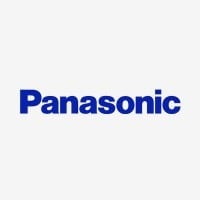 A Japanese multinational, Panasonic offers a variety of electronic products, including digital cameras. Their cameras are often praised for their video capabilities, including 4K recording options. The Lumix G series has found a home with both professionals and hobbyists alike.
A Japanese multinational, Panasonic offers a variety of electronic products, including digital cameras. Their cameras are often praised for their video capabilities, including 4K recording options. The Lumix G series has found a home with both professionals and hobbyists alike. When you want to take pictures manually (you decide after taking measurements of the ISO, aperture, etc., with a light meter), you can get the best photos with a Panasonic Lumix. Plus, the lens is made by Leica, which is one of the best, if not the best, in the world. I have tried several other brands, but nothing can compare with Panasonic. If you want a good non-professional camera, choose Panasonic because the photo quality is very close to that of professional cameras.
I have two Lumix cameras and have been amazed at the results I've seen. I use one point-and-shoot for mostly indoor pictures like exhibitions, etc. For bird and animal photography, I use my other, larger camera.
I received some useful advice about initial setups that has helped considerably.
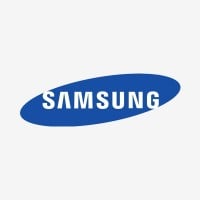 South Korean electronics giant Samsung has delved into the digital camera market alongside its other consumer electronics. Their Smart Cameras offer built-in Wi-Fi and integration with smartphones. However, Samsung has scaled back its camera production in recent years to focus on its other core businesses.
South Korean electronics giant Samsung has delved into the digital camera market alongside its other consumer electronics. Their Smart Cameras offer built-in Wi-Fi and integration with smartphones. However, Samsung has scaled back its camera production in recent years to focus on its other core businesses. I have an NX100 and NX1000, and I love them. They are the best cameras I have ever owned in my life, digital or film. They are easy to use and offer great ways of adapting for a situation when shooting. I've found there is no all-in-one digital camera. Also, the NX100 has the best response when I push the button compared to other camera brands I've seen and owned.
I had a Nikon D40x. It was good but really picky. The focus is actually better with the NX100 than with the D40x. Samsung has its good and bad items. I also own a WB50F, which is quite possibly one of the worst cameras I have ever owned. If I'm just going out for a basic day shooting on the nature trail, I prefer my Polaroid 1036 to my WB50F.
 A Japanese electronics company, Casio has a range of digital cameras under its Exilim brand. These cameras are typically aimed at the casual consumer market and are known for their slim design and user-friendly interfaces. While they might not offer professional-level features, they are generally reliable for point-and-shoot photography.
A Japanese electronics company, Casio has a range of digital cameras under its Exilim brand. These cameras are typically aimed at the casual consumer market and are known for their slim design and user-friendly interfaces. While they might not offer professional-level features, they are generally reliable for point-and-shoot photography. I have had two Exilims. They are quite small and do an amazing job with detail and color. However, when using flash for people shots, they are often partly washed out. Maybe it's the settings I use?
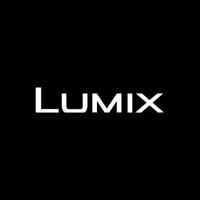 Lumix is a brand of digital cameras created by Panasonic. Specializing in mirrorless and compact models, the Lumix line has earned praise for its Leica-branded lenses and video capture features. Models like the GH5 have become popular among videographers for their high-quality output.
Lumix is a brand of digital cameras created by Panasonic. Specializing in mirrorless and compact models, the Lumix line has earned praise for its Leica-branded lenses and video capture features. Models like the GH5 have become popular among videographers for their high-quality output. The camera I used to film videos is a Lumix.
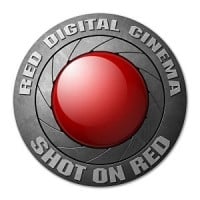 An American company founded by Jim Jannard, RED specializes in high-end digital cinematography cameras. Known for their modularity and raw video capabilities, RED cameras are often used in professional film and television production. These cameras offer high-resolution sensors and a range of compatible accessories for customized setups.
An American company founded by Jim Jannard, RED specializes in high-end digital cinematography cameras. Known for their modularity and raw video capabilities, RED cameras are often used in professional film and television production. These cameras offer high-resolution sensors and a range of compatible accessories for customized setups.
 A Japanese multinational, Ricoh has been involved in the imaging and electronics industry for many years. Their cameras, such as the Ricoh GR series, are known for their compact design and high-quality lenses. The brand also owns Pentax, further expanding its reach in the photography market.
A Japanese multinational, Ricoh has been involved in the imaging and electronics industry for many years. Their cameras, such as the Ricoh GR series, are known for their compact design and high-quality lenses. The brand also owns Pentax, further expanding its reach in the photography market. I have a RICOH WG-20, a weatherproof model. At 14MP, the pictures are fantastic. The model is easy to use. I didn't even need a manual. I can trust its ruggedness. It's well-built with features that are easy to see and use. I was lucky to find this gem, and I mean that literally. I actually found it in the trash. I can't believe how fortunate I've been. I take photos for the automotive detailing that I do, and I can count on the before-and-after pictures to be consistent. The camera gets the job done with accuracy.
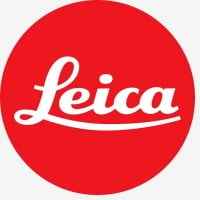 A German company renowned for its high-end cameras and optics, Leica cameras are synonymous with quality and precision. Known for their rangefinder systems, Leica cameras are often considered status symbols in the photography community. The brand enjoys a rich history dating back to the early 20th century and remains a preferred choice for many professional photographers.
A German company renowned for its high-end cameras and optics, Leica cameras are synonymous with quality and precision. Known for their rangefinder systems, Leica cameras are often considered status symbols in the photography community. The brand enjoys a rich history dating back to the early 20th century and remains a preferred choice for many professional photographers. Come on! This is ranked way too low. It's common knowledge that Leica makes the best lenses. Just look at every test in magazines. It's not cheap - you really pay for the quality here, not just for the name of the brand like most people think - but once you own one, you will see for sure a difference compared to other cameras.
Its only flaw, as I said before, is its price, especially the lenses. If you are a serious artist in photography, you will get the most out of this camera. A professional might look for a cheaper quality brand if they are just doing publicity photography, for instance.
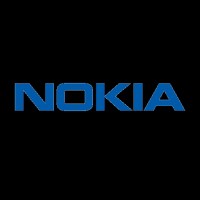 Known primarily for mobile phones, the Finnish company Nokia has also integrated advanced camera technology into its smartphone lineup. In collaboration with companies like Carl Zeiss, Nokia has produced phones with impressive camera capabilities. While they're not dedicated camera manufacturers, their mobile imaging technology has been notable.
Known primarily for mobile phones, the Finnish company Nokia has also integrated advanced camera technology into its smartphone lineup. In collaboration with companies like Carl Zeiss, Nokia has produced phones with impressive camera capabilities. While they're not dedicated camera manufacturers, their mobile imaging technology has been notable.
One of the best action cam brands. Sharp image, cheap price, and good color quality.
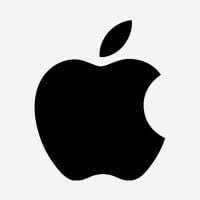 While not a traditional camera manufacturer, Apple has made significant strides in camera technology through its iPhone line. Its smartphones feature advanced camera systems that employ computational photography techniques for stunning results. The user-friendly interface and integration with other Apple services make it a popular choice for mobile photography.
While not a traditional camera manufacturer, Apple has made significant strides in camera technology through its iPhone line. Its smartphones feature advanced camera systems that employ computational photography techniques for stunning results. The user-friendly interface and integration with other Apple services make it a popular choice for mobile photography. Using my phone as my camera allows me to take pictures, videos, and much more. It's great. You don't miss out on so many opportunities to grab that amazing shot. I don't have to lug my Canon with me everywhere. It has decent zoom that I use often.
Mine is an iPhone 10, so I can't speak to the iPhone 12. I do know that it has lenses that my phone doesn't. I will upgrade and am looking forward to seeing what it can do.
Oh, my camera shoots in 4K, be it a nature pic, video, portrait mode, time-lapse, etc. It's easy to use, has some nice features, and is something that most people carry around. It offers easy access, is lightweight, and is a great camera, especially for capturing things that you wouldn't if you have a Canon or any bulky cameras. These aren't practical or even okay to bring to certain places. Point, shoot, and if you want, edit right on your phone. There are also some really great professional editing apps available.
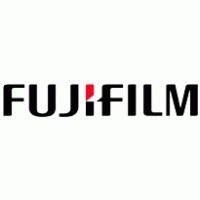 Fujifilm is a Japanese multinational corporation known for its diverse range of imaging and photography products. It made its name in the film photography industry but has transitioned successfully into the digital camera world. Their X-Series cameras are especially popular among professionals for their high image quality and retro design.
Fujifilm is a Japanese multinational corporation known for its diverse range of imaging and photography products. It made its name in the film photography industry but has transitioned successfully into the digital camera world. Their X-Series cameras are especially popular among professionals for their high image quality and retro design. I bought a reasonably priced Fujifilm FinePix camera a while back. It's amazingly easy to operate and user-friendly. No need to dig through menus, and it's fully manual with RAW capability. This camera has been all over the world with me.
After dropping it on a marble museum floor, craggy rocks, and being waterlogged in a severe downpour, as well as surviving Niagara Falls, the camera keeps on snapping photos. Although it is old and outdated now, it still takes amazing photos, and nothing comes close to the super macros it's capable of.
 While not a camera manufacturer per se, Google has made considerable advances in computational photography through its Pixel smartphones. These devices offer advanced AI-driven features like Night Sight and Super Res Zoom. Google aims to achieve professional-level photo quality primarily through software algorithms rather than hardware alone.
While not a camera manufacturer per se, Google has made considerable advances in computational photography through its Pixel smartphones. These devices offer advanced AI-driven features like Night Sight and Super Res Zoom. Google aims to achieve professional-level photo quality primarily through software algorithms rather than hardware alone.
 A Swedish manufacturer specializing in medium-format cameras, Hasselblad is a name associated with high-end professional photography. Known for their exceptional build and image quality, Hasselblad cameras have been used in various historic moments, including the Apollo moon landings. Their digital medium-format cameras are sought after by professionals in fields like fashion and landscape photography.
A Swedish manufacturer specializing in medium-format cameras, Hasselblad is a name associated with high-end professional photography. Known for their exceptional build and image quality, Hasselblad cameras have been used in various historic moments, including the Apollo moon landings. Their digital medium-format cameras are sought after by professionals in fields like fashion and landscape photography. One of the high-end, prestigious camera makers in the world. Their cameras produce stunning, gorgeous pictures with a variety of models. One of their models has a 50-megapixel CMOS sensor.
This pro camera is just my dream camera. I use it sometimes. I have some other brands, but I've always dreamed of having a Hasselblad.
Outstanding product quality and attention to detail, with beautiful color science.
I like my 35mm camera from them. It's a good-quality, well-built camera that uses Leica lenses. Or at least mine did at the time.
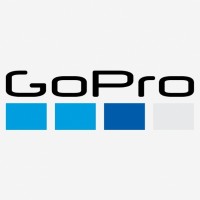 American company GoPro specializes in action cameras that are small, waterproof, and rugged. Their cameras are designed to be attached to helmets, surfboards, and other outdoor gear. Known for their high-quality video capabilities, GoPro cameras are a staple in extreme sports and adventure videography.
American company GoPro specializes in action cameras that are small, waterproof, and rugged. Their cameras are designed to be attached to helmets, surfboards, and other outdoor gear. Known for their high-quality video capabilities, GoPro cameras are a staple in extreme sports and adventure videography. I use this for waterslides due to the waterproofing. Even without water, it is the best 4K camera. If you aren't into water, 4K, or 60fps, this isn't a good camera. But I'm part of the niche audience, so I'm chill.
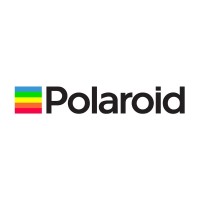 An American company with a storied history, Polaroid is famous for its instant cameras. Although they have diversified into digital cameras, they still offer the nostalgic touch of instant photo printing within modern digital designs. Their point-and-shoot cameras appeal to consumers looking for simplicity and immediate gratification.
An American company with a storied history, Polaroid is famous for its instant cameras. Although they have diversified into digital cameras, they still offer the nostalgic touch of instant photo printing within modern digital designs. Their point-and-shoot cameras appeal to consumers looking for simplicity and immediate gratification. They released a few I-Zone instant pocket cameras, including those that are licensed (Barbie, Girl Tech, and American Girl).